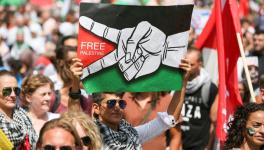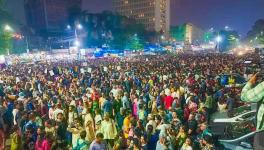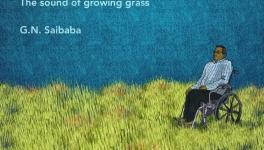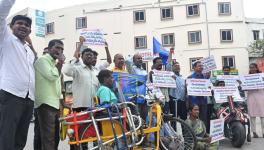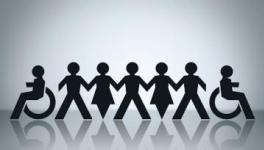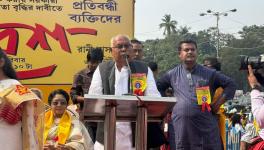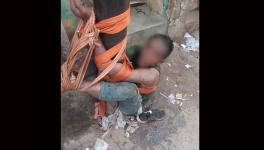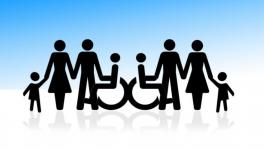Disabled Persons Hold Huge Rally in Kolkata, to Intensify Struggle for Rights
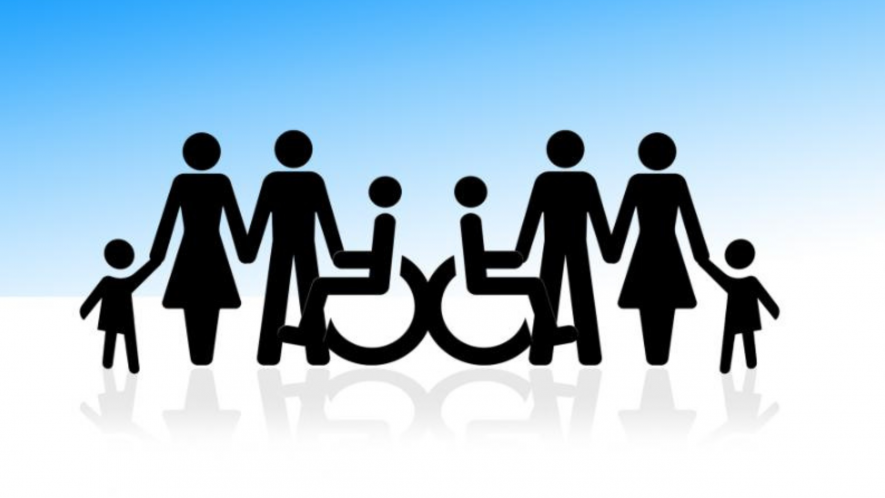
Representational Image. File Image
Access to physical infrastructure and information continues to be neglected in West Bengal. This is so despite it being mandated by law that within five years, all public facilities must be made accessible for the disabled.
Expressing dismay over no forward movement in this regard, the disabled persons fraternity in the state is planning to launch struggles in a big way to demand their rights, as enshrined in the country’s law.
“In coming months, prepare for even bigger struggles,” said Kanti Ganguly, general secretary of Paschimbanga Rajya Pratibandhi Sammilani (PRPS) and president of National Platform for Rights of the Disabled (NPRD), at a rally of over thousands gathered at Rani Rashmoni Avenue, the nerve-centre of all protest activities in Kolkata.
The occasion was the International Day for Disabled Persons last Saturday. The rally was called by PRPS, the “largest” disabled peoples’ organisation in West Bengal that is affiliated to NPRD.
Speakers at the rally, which saw huge participation by disabled persons, also noted lack of physical access in the case of education, too, with the government doing “precious little” to make schools, colleges and other institutions disabled-friendly.
“In the face of such an apathetic government, intensification of struggle is the only way forward,” said Bikashranjan Bhattacharya, member of Rajya Sabha and a noted advocate. Film-maker Kamaleshwar Mukhopadhyay and thespian Paran Bandyopadhyay, who also took part in the rally, pledged support to the future endeavours of PRPS.
On the occasion, PRPS also felicitated a few disabled persons who had shown “exemplary resolve”. Among these were Rimo Saha, who crossed the English Channel and Catalina Strait and Ruksana Khatun, who suffers from thalassemia and has won medals in national karate championships. Mohammed Alam Rahman, a student with more than 90% disability, who secured over 90% marks in this year’s secondary examination, got a huge applause from the crowd.
Brajakishor Mondal, a student with hearing impairment, who has qualified in the NEET exam to study medicine, was also felicitated. Deaf since childhood, Mondal had to cross several barriers to study in a neighbourhood school. With the right kind of intervention and support, this boy from a remote village of Purba Bardhaman district has achieved the feat of becoming the deaf student of West Bengal to study medicine.
Mondal’s success story is a testimony to the fact that inclusive education, if properly implemented, can open up vistas hitherto unknown to many disabled persons.
According to the organiser, people from other districts had started reaching the city since the previous night, despite enormous hardship, such as the winter chill or the hostile attitude of some of the railway personnel. The gathering of the disabled persons from across the state showed their resolve to intensify the struggle for their rights.
After all, the community had to struggle for 48 long years to win a law containing their rights and safeguards. However, that legislation, The Persons with Disability (equal opportunity, full participation and protection of rights) Act, 1995, failed to live up to their expectations.
The Act stated that appropriate governments would take necessary steps to ensure barrier-free access, education, health and other necessary aspects of the lives disabled persons within their economic capacity. This meant that the rights of the disabled people would be contingent on the economic resources of the government. The legislation was decried by disability activists who called for scores of amendments in the Act.
India’s signing and ratifying the United Nation Convention for Rights of Persons with Disabilities, aka UNCRPD, provided further impetus to the demand of a new generic legislation.
In 2010, the erstwhile Central government started the process of drafting a new legislation in keeping with the provisions of the UNCRPD. This process went on for six long years and in 2016, both Houses of Parliament, after due deliberation, passed the Bill unanimously. In 2017, the new Rights of Persons with Disability Act came into force.
PRPS played a major role in organising struggles demanding speedy enactment of the legislation. However, after the Act was passed, it was felt that disabled persons would have to dig in for more struggles to see that the provisions of the Act are properly implemented. They felt the focus of advocacy needed to shift from the Centre to the states for the implementation of the Act, given the fact that disability is a state subject as per the Indian Constitution.
The enormity of this challenge was not lost on PRPS, which was familiar with the lackadaisical attitude of the government of West Bengal in implementing people-centric legislations. In fact, implementation of the provisions of the Act followed the same shoddy script. It was mandated in the Act that the rules under it needed to be framed within six months, but it took more than two years for the government to frame the rules.
Even when the rules were put out in the public domain, these were not accessible to a large section of the disabled persons. The content of the rules shocked the disability activists as there was no mention of key areas, like social security, healthcare, education and accessibility. Therefore, ever since the Act came into force, PRPS has been relentlessly fighting against the apathy and insensitivity of the state government.
Then came the pandemic, which exposed the creaking nature of social security in West Bengal. Therefore, for the past couple of years, PRPS has intensified its agitation to ensure that social security provisions of the Act are duly implemented.
Even though it is stated in the Act that 25% extra should be allocated to disabled persons in all poverty-alleviation schemes and preferential treatment should be given to women and children with disability in allotting houses, the West Bengal government is yet to frame rules for this.
Also, the disability pension of a measly Rs 1,000 is not enough for the survival of disabled persons. Therefore, PRPS has raised the demand of increasing the disability pension from Rs 1,000 to Rs 3,000 for the disabled persons in general and Rs 5,000 for those in need of high support.
Anirban Mukherjee, who is visually disabled, is president of PRPS and executive committee member of National Platform for Rights of the Disabled. He teaches English in a secondary school in West Bengal. The views are personal.
Get the latest reports & analysis with people's perspective on Protests, movements & deep analytical videos, discussions of the current affairs in your Telegram app. Subscribe to NewsClick's Telegram channel & get Real-Time updates on stories, as they get published on our website.









